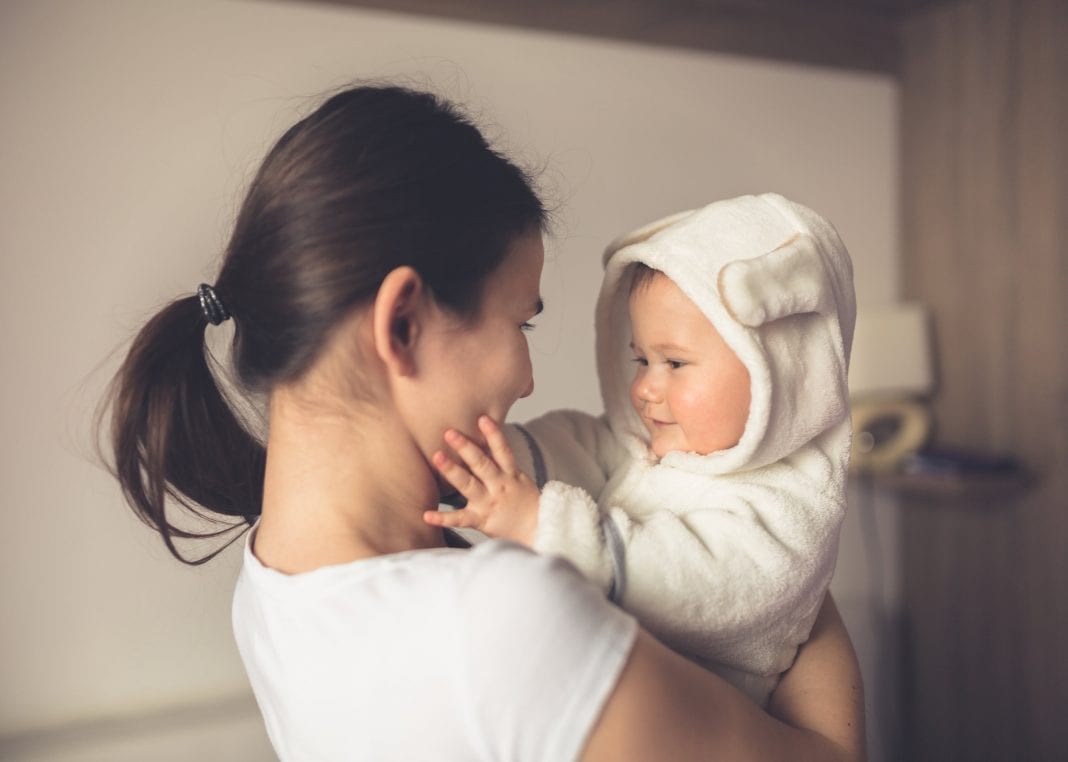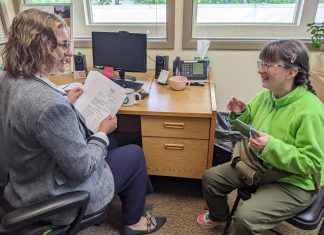Submitted by Whatcom County Health Department
Adjusting to parenthood is challenging in the best of times, let alone during a global pandemic. Needing to stay away from others along with hearing daily information about the COVID-19 outbreak can add to feelings of anxiety and depression in new parents. Because of COVID-19, new parents may need to find new ways to get help from family, friends, and community support.
Around one in seven women will experience a mental health issue like depression or anxiety before, during, or after pregnancy. It is the most common complication in pregnancy.
But mental health concerns often go undiagnosed and untreated. Without treatment, it can affect the physical and emotional health of a mom, their partner and the baby. The baby’s development might also be hindered. These impacts cost our families, community, and workplaces, both emotionally and economically.
Risk Factors for a Bumpy Adjustment to Motherhood
We are surrounded by images of blissful motherhood on TV, in magazines and in popular culture. But many new mothers experience some distressing feelings after giving birth. That’s normal, because the responsibilities of being a new parent are tough and exhausting.
A mother is more likely to have emotional distress if she has:
- History of depression or anxiety before or during pregnancy.
- “Baby blues” that don’t improve with self-care like sleep, food, or exercise.
- Recent stressful events, including economic uncertainty.
- Lack of support, from a partner or in general.
- A difficult birth or infant health concerns.
Poor mental health can affect women during any pregnancy or birth and women of any race, age, or economic background. However, not everyone has equal access to help. Women of color, women with lower income and less education, and teen mothers are less likely to be diagnosed and treated. Recent immigrants are at higher risk too. Fathers are also at risk of depression after the birth of a baby, and the risk goes up significantly when the mother experiences depression too.
What Do Distressing Feelings Look Like?
Feelings of distress can start any time during pregnancy or after a baby is born. While the experience may look different for each individual, many women experience things like:
- Trouble sleeping even when exhausted.
- Scary thoughts like hurting oneself or their baby.
- Feeling sad, numb, or disconnected from life.
- Feeling anxious all the time and overwhelmed with worry.
- More anger, rage, and irritability than normal.
- Guilt and shame about not bonding with their baby.
You or someone you love might show signs like having upsetting feelings for most of the day, nearly every day for two weeks or longer. If this happens, ask for help.
Where to Turn for Help
With the COVID-19 pandemic, your plans for support after childbirth from family and friends have probably been changed or cancelled. Losing your support system can make it harder to figure out the bumpy transition to parenting.
Fortunately, help is available—from family, peers and providers. Due to COVID-19, support looks different. Many providers are using telehealth visits for most of their visits. Support groups have moved online. See the resources below for providers, support groups, and ways that we can all support parents and families:
- For immediate help, call the 24-hour crisis line at 1-800-584-3578 or visit www.imhurting.org.
- Call your doctor, your child’s doctor, your home visiting nurse, or your mental health counselor for screening and help. Use this conversation starter in English or Español.
- Check these five self-care steps regularly: sleep, food, exercise, support and water. Use Mobile Mama Therapy’s mindfulness stress relieving suggestions.
- The Whatcom Perinatal Mental Health Task Force has a range of support ideas and resources in English and Spanish.
- Bellingham Center for Healthy Motherhood’s Village Circle Peer Support has virtual support meetings via Zoom twice a week.
- Postpartum Support International Call 1-800-944-4773 and press #1 en Español or #2 for English. Text 503-894-9453 for English or 971-420-0294 en Español. They also offer Chat with an Expert sessions for moms and dads.
- Perinatal Support Washington has a parent support warm line as well as information about support groups and providers. Call 1-888-404-7763 for support in English or Español.
Featured photo courtesy PeaceHealth








































